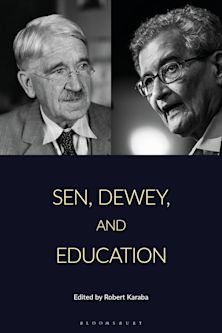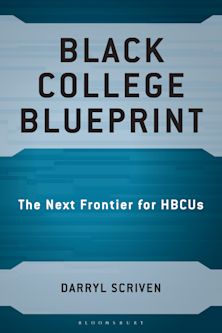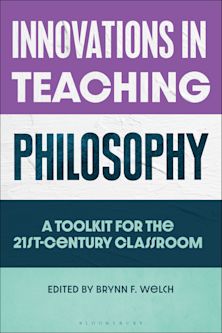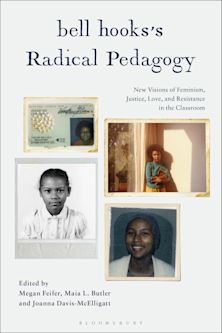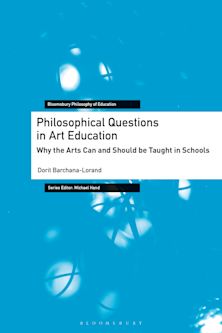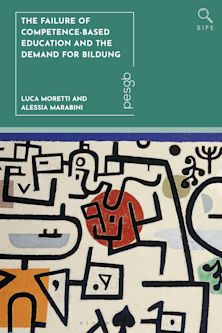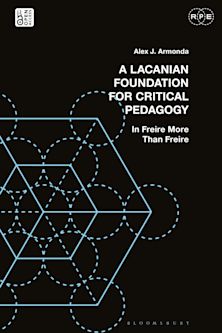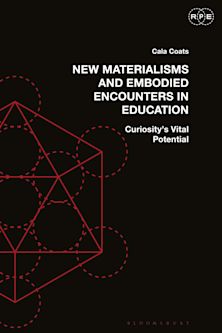- Home
- ACADEMIC
- Education
- Philosophy of Education
- Private Sociology
Private Sociology
Unsparing Reflections, Uncommon Gains
Arthur B. Shostak (Anthology Editor) , Isaac D. Balbus (Contributor) , Sarah Brabant (Contributor) , William B. Brown (Contributor) , Kristine Anderson Dougherty (Contributor) , Don Eckard (Contributor) , Carolyn Ellis (Contributor) , David O. Friedrichs (Contributor) , Ann Goetting (Contributor) , Barbara A. Haley (Contributor) , Ross Koppel (Contributor) , Marianne A. Paget (Contributor) , Douglas V. Porpora (Contributor) , Larry T. Reynolds (Contributor) , Carol Rambo Ronai (Contributor) , Barbara Katz Rothman (Contributor) , Joseph W. Ruane (Contributor) , Don H. Shamblin (Contributor) , Z.G Standing Bear (Contributor) , Robert L. Stewart (Contributor) , Roger A. Straus (Contributor) , Richard Quinney (Contributor) , Jan Yager (Contributor)
Private Sociology
Unsparing Reflections, Uncommon Gains
Arthur B. Shostak (Anthology Editor) , Isaac D. Balbus (Contributor) , Sarah Brabant (Contributor) , William B. Brown (Contributor) , Kristine Anderson Dougherty (Contributor) , Don Eckard (Contributor) , Carolyn Ellis (Contributor) , David O. Friedrichs (Contributor) , Ann Goetting (Contributor) , Barbara A. Haley (Contributor) , Ross Koppel (Contributor) , Marianne A. Paget (Contributor) , Douglas V. Porpora (Contributor) , Larry T. Reynolds (Contributor) , Carol Rambo Ronai (Contributor) , Barbara Katz Rothman (Contributor) , Joseph W. Ruane (Contributor) , Don H. Shamblin (Contributor) , Z.G Standing Bear (Contributor) , Robert L. Stewart (Contributor) , Roger A. Straus (Contributor) , Richard Quinney (Contributor) , Jan Yager (Contributor)
You must sign in to add this item to your wishlist. Please sign in or create an account
Description
Years ago when I began to accumulate information for a topic I was researching, I began from the perspective of my own experiences within the topic I studied. I worked outward, and then back again, to understand my topic, and to comprehend each of my perspectives within it. Because I was able to place myself within my topic rather then distancing myself from it, my understanding of 'things' was clearer, more accurate. I became a better sociologist. For me, to be able to view portions of another person's life from the inside out, is an incredible way to learn more about my own life and evaluations. Each person in this book has used personal experience as the basis from which to frame his individual sociological perspectives. Because they have personalized their work, their accounts are real, and recognizable as having come from 'real' persons, about 'real' experiences. There are no objectively-distanced disembodied third person entitites in these accounts. These writers are actual people whose stories will make you laugh, cry, think, and want to know more. If you regard your own perspecitve as truly relevant to your own understanding of all to which you apply your sociological insights, you will allow yourself to experience Private Sociology.
Table of Contents
Chapter 2 Preface: On Getting Personal
Chapter 3 Introduction: Private Sociology-Through a Prism of Private Perspective
Part 4 Part I: Sharing Self through Sociology-and Vice-Versa
Part 5 Childhood Revisited
Chapter 6 "Socializaiton for Change: The Cultural Heritage of the White Southern Woman."
Chapter 7 "Multiple Reflections of Child Sex Abuse."
Part 8 Parenting as Challenge
Chapter 9 "Infant Industry: Marketing to New Parents."
Chapter 10 "Men and the Art of Mothering: A Case Study in the Relationship between Theory and Practice."
Part 11 Class and Race Legacy
Chapter 12 "Life as Masquerade."
Chapter 13 "Questions of Assertion, Diversity, and Spirituality: Simultaneously Becoming a Minority and a Sociologist."
Chapter 14 "Reflections of a White Racist."
Chapter 15 "The Other Side of the Fence: Seeing Black and White in a Small Southern Town."
Part 16 Sociology as Challenge
Chapter 17 "Private Sociological Labor: Using Sociology in an Academic and Union Career."
Chapter 18 "Reflections: On Hard Work."
Chapter 19 "Dirty Details Your Methods Text Forgot to Mention: Some Strategies for the Defensive Sociologist."
Part 20 Taking an Uncommon Stand
Chapter 21 "I Always Was a Religious Kid."
Chapter 22 "Choosing Stigma."
Part 23 Ancient Quest, Modern Tools
Chapter 24 "Ecofeminism Found: One Woman's Journey to Liberation."
Chapter 25 "Law as a Story in Our Lives: A Personal Account."
Part 26 On Reconsideration
Chapter 27 "On Second Thought: Exercises in an Endangered Art Form."
Chapter 28 "On Having Been a Scientologist, or the Value of Not Hanging Around the Edges of Things, Looking In."
Part 29 Reconciliation
Chapter 30 "Reconciliation in a Back-Alley Cafe of Saigon."
Chapter 31 "Life Mirrors Work Mirrors Text Mirrors Life."
Chapter 32 "When Time Doesn't Heal the Wound."
Part 33 Life Affirmation
Chapter 34 "The Way of Autobiographical Reflection."
Part 35 Part II: Sharing Private Sociology: Advice and Perspective
Chapter 36 "Advice on Teaching and Writing Private Sociology."
Chapter 37 "The Biologizing the Individual and The Naturalization of the Social."
Chapter 38 Epilogue
Chapter 39 Notes on Contributors
Chapter 40 Annotated Bibliography
Product details
| Published | 01 Jan 1996 |
|---|---|
| Format | Ebook (Epub & Mobi) |
| Edition | 1st |
| Extent | 296 |
| ISBN | 9781461705291 |
| Imprint | Rowman & Littlefield Publishers |
| Publisher | Bloomsbury Publishing |
About the contributors
Reviews
-
It is riveting to witness the authors in this volume repeatedly cross the boundary between their lived experience (particularly events not conventionally written about) and sociological insight. This 'transgression' of boundaries is precisely what the sociologist's task ought to be about. Private Sociology is an invaluable addition to the growing field of sociology written from the inside out. Professionals and nonprofessionals alike will profit from reading these discerning and moving testimonies.
Robbie Pfeufer Kahn, author of Bearing Meaning: The Language of Birth
-
Contributors write from the conviction we have much to learn from taking unsettling aspects of our lives as sociological subject matter. Their essays demonstrate both the soundness and potential of this exciting innovation. Their candor and insights model a still-finer sociology. Both our intro courses and our seminars for majors will profit from the use of this pioneering volume.
George Dowdall, St. Joseph's University and Brown University School of Medicine
-
Years ago when I began to accumulate information for a topic I was researching, I began from the perspective of my own experiences within the topic I studied. I worked outward, and then back again, to understand my topic, and to comprehend each of my perspectives within it. Because I was able to place myself within my topic rather then distancing myself from it, my understanding of 'things' was clearer, more accurate. I became a better sociologist. For me, to be able to view portions of another person's life from the inside out, is an incredible way to learn more about my own life and evaluations. Each person in this book has used personal experience as the basis from which to frame his individual sociological perspectives. Because they have personalized their work, their accounts are real, and recognizable as having come from 'real' persons, about 'real' experiences. There are no objectively-distanced disembodied third person entitites in these accounts. These writers are actual people whose stories will make you laugh, cry, think, and want to know more. If you regard your own perspecitve as truly relevant to your own understanding of all to which you apply your sociological insights, you will allow yourself to experience Private Sociology
Joan I. Biddle, sociologist
-
Years ago when I began to accumulate information for a topic I was researching, I began from the perspective of my own experiences within the topic I studied. I worked outward, and then back again, to understand my topic, and to comprehend each of my perspectives within it. Because I was able to place myself within my topic rather then distancing myself from it, my understanding of 'things' was clearer, more accurate. I became a better sociologist. For me, to be able to view portions of another person's life from the inside out, is an incredible way to learn more about my own life and evaluations. Each person in this book has used personal experience as the basis from which to frame his individual sociological perspectives. Because they have personalized their work, their accounts are real, and recognizable as having come from 'real' persons, about 'real' experiences. There are no objectively-distanced disembodied third person entitites in these accounts. These writers are actual people whose stories will make you laugh, cry, think, and want to know more. If you regard your own perspecitve as truly relevant to your own understanding of all to which you apply your sociological insights, you will allow yourself to experience Private Sociology.
Joan I. Biddle, sociologist












